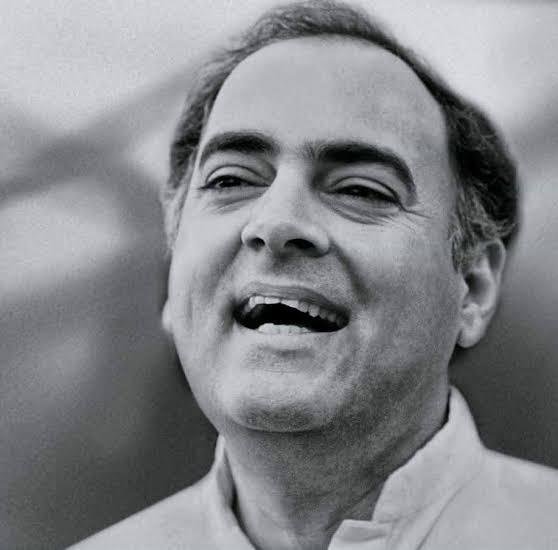Remembering Rajiv Gandhi - The Youngest Ever Prime Minister of India

It has almost been three decades after the horrific assassination and demise of our former Prime Minister Rajiv Gandhi. Today, on May 21st as the whole country is mourning the loss, we will take you to the journey of his ‘reluctant stepping up’ as the prime minister and his pertinent death case.
Early years:
He was born as Rajeevratna Birjees Gandhi on 20 August 1944 to Indira Gandhi and Feroze Gandhi. His grandfather, Jawaharlal Nehru, the first prime minister of independent India, was in prison when he was born.
Rajiv was ‘never interested’ in politics, but was very passionate about flying. He enrolled in the Delhi Flying Club after returning to India in 1966 and later became a pilot with Indian Airlines in 1968. He was also interested in photography, Hindustani and western classical music and preferred the Rolling Stones to The Beatles when it came to rock music.
Setting foot in Politics (reluctantly):
For most of his life, Gandhi remained apolitical. Gandhi entered the political arena after the demise of his brother Sanjay Gandhi. After the death of Sanjay Gandhi in 1980 in an air crash, Rajiv was forced into politics on his mother’s insistence although there was quite a resistance from Sonia Gandhi, his wife. A year later, he marked his political success by winning his brother’s Parliamentary constituency Amethi, Uttar Pradesh in the Lok Sabha elections. Later, Rajiv became the Congress General Secretary.

The Prime Minister Role:
In 1984, after the assassination of his mother, Rajiv took over the reins of the Congress. At that time, President Giani Zail Singh had called for fresh elections and the Congress won by a landslide, winning 414 seats.
In the second volume of his memoir, The Turbulent Years: 1980-96, President Pranab Mukherjee shares an insider’s account of several significant events during the 1980s and early 1990s. In an extract, Mukherjee talks about how Rajiv Gandhi wanted to know ‘how potent’ the bullets were after his mother Indira Gandhi was shot by her bodyguards in 1984. He also rejects as ‘false and spiteful’ stories that he aspired to be the Prime Minister after Indira Gandhi’s assassination.
The hours between Indira’s assassination and the naming of Rajiv as the next prime minister have often been the subject of intense political speculation.

His works as the Prime Minister:
During his five-year tenure as Prime Minister, Rajiv had signed peace accords with insurgent groups in Mizoram, Assam, and Punjab in an effort to end insurgency and violence in these states.
In 1985, the Punjab accord, also known as the Rajiv-Longowal Accord, was signed with Harchand Singh Longowal, who was the president of the Akali Dal. In the same year, a pact was signed with the All Assam Students Union (AASU). A year later, the Mizo Peace Accord was signed with Laldenga, the founder of the Mizo National Front.
Under Rajiv’s rule, the SAARC (South Asian Association for Regional Cooperation) was founded in 1985 and signed by Afghanistan, Bangladesh, Bhutan, Nepal, Maldives, and Sri Lanka.
Rajiv is also credited for giving importance to science and technology. He brought in computers and spoke of liberalization. The telecom industry witnessed a breakthrough under his government with the initiation of Mahanagar Telephone Nigam Limited in 1986.
Family:
In 1968, he married Sonia Gandhi, the current president of the Congress party and the United Progressive Alliance chairperson. The couple had two children Rahul Gandhi and Priyanka Gandhi Vadra. Rahul Gandhi served as the party chief and is a Member of Parliament. Priyanka Gandhi Vadra is the AICC general secretary at present.
Rajiv Gandhi’s Assassination:
Gandhi remained Congress chief until the 1991 Lok Sabha elections. On this day, twenty-nine years back, he was assassinated during an election campaign.

He was assassinated by a female LTTE suicide bomber at a public meeting in Sriperumbudur, Tamil Nadu. Rajiv reached Sriperumbudur after 10 pm where he was greeted by a waiting crowd. As he approached a group of 30 women, one suddenly broke out and bent down to touch his feet. When a woman constable tried to stop her, Rajiv intervened and said not to worry. The woman then detonated her explosives-laden belt, killing Rajiv and over 17 others.
Still an On-going ‘Tete-A-Tete’:
Up until, this January, Rajiv Gandhi’s assassination has been the point of intense discussion. The Supreme Court expressed its unhappiness with the status report of the Central Bureau of Investigation (CBI) on the probe into the larger conspiracy behind the assassination of former Prime Minister Rajiv Gandhi at Sriperumbudur in Tamil Nadu in 1991.
The Government of India had appointed two inquiry commissions in the wake of the assassination of Rajiv Gandhi.
The first Commission constituted by retired Chief Justice J.S.Verma was asked to go into the intelligence and physical security lapses that were responsible for the assassination.
The second, constituted by retired Justice M.C.Jain, was asked to go into the conspiracy aspect. The Verma Commission kept itself strictly confined to its terms of reference and carried out.
Instead of revealing the progress made to unearth the truth, the report filed in the Supreme Court by the investigating agency merely parrots its past reports over the years.
“We are not happy with the report,” as said by a Bench of Justices L. Nageswara Rao and Hemant Gupta.
Senior advocate Gopal Sankaranarayanan, appearing for Rajiv Gandhi assassination convict A.G. Perarivalan, submitted that the CBI Multi-Disciplinary Monitoring Agency (MDMA), probing the larger conspiracy behind the killing, was yet to conclude its investigation pertaining to the origin and make of the bomb.
Apart from the investigation of the assassination and the related conspiracy, another important aspect was the identification of the acts of commission and omission by the political leadership of the day, the intelligence agencies, and those responsible for physical security which resulted in the assassination of Rajiv Gandhi.
While, these discussions seem to never end, and certainly not in the near future; we shall take aside today to respect our former prime minister and honour him for all the landmark services he has done for the nation.















































